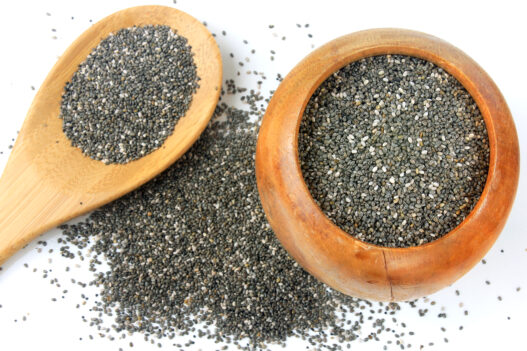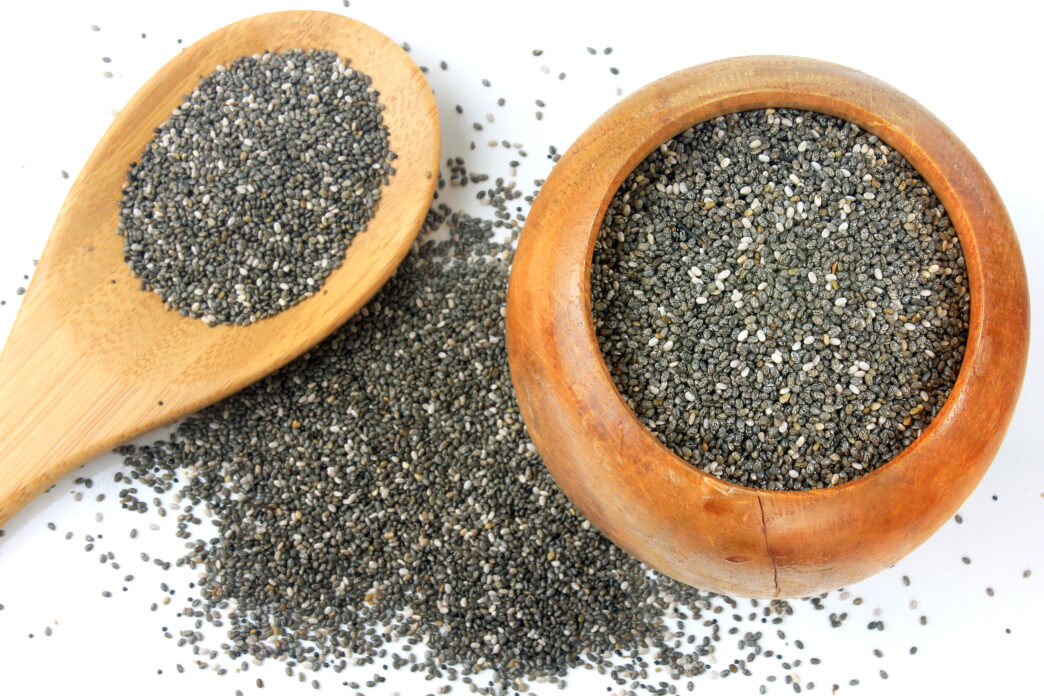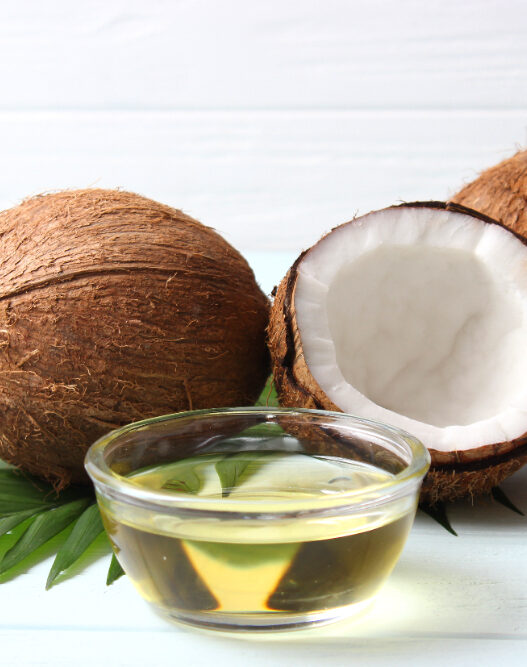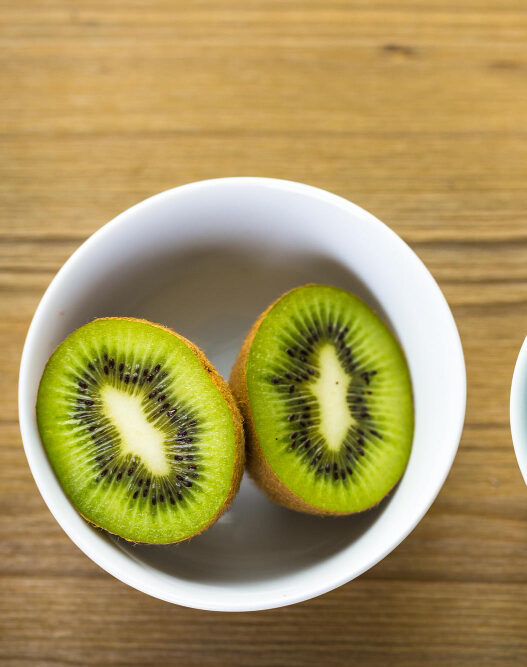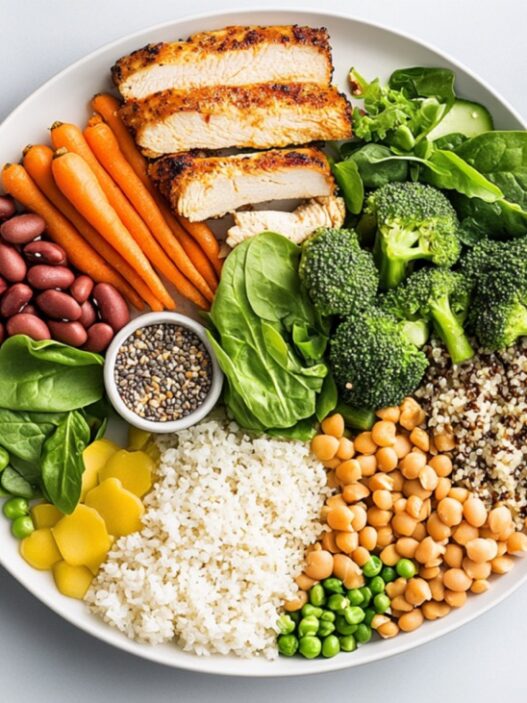-
Chia Seeds (Salvia hispanica)
-
Fats in Chia Seeds
-
Protein & Fibre in Chia Seeds
-
Vitamins & Minerals in Chia Seeds
-
Health Benefits of Chia Seeds Dietary Consumption
A group of researchers from Portugal and Brazil reviewed the available scientific evidence for Salvia hispanica or Chia Seeds and Chia seed oil in different health conditions and published their findings entitled “CHIA SEEDS – AN ANCIENT GRAIN TRENDING IN MODERN HUMAN DIETS” in the journal Food & Function in 2019. They found scientific evidence of numerous health benefits of Chia seeds mainly due to the fat, protein, and dietary fibre contents and several vitamins and minerals present in Chia seeds. The health benefits of chia seeds and chia seed oil in dietary consumption is elaborated along with tips on incorporating them in your daily diet.
Salvia Hispanica (Chia Seeds)
CHIA SEEDS (Salvia hispanica L.) are an ancient grain from Mexico, Colombia, and Guatemala. These have been used for therapeutic purposes by Mayan and indigenous Aztec civilizations for 5500 years. They can be white or black in colour. Nowadays, due to the approval by the European Parliament, on the 22nd of January 2013, as a Novel Food ingredient, they are trending in human diets, being incorporated in several food products available everywhere.
These seeds also became popular due to their complete chemical composition which varies according to the different climatic conditions to which the plants are exposed. Therefore, their nutrient contents are dependent on, for example, cultivation region, soil composition, and plant stage development.
Recommendation of Salvia Hispanica Or Chia seeds in the diet
The United Kingdom Advisory Committee for Novel Foods and Processes reports that the average consumption of Chia seeds for adults should be around 2.1 g/day. However, the average consumption of Chia seeds for children with ages between 1.5 and 4.5 years should be 1.1 g/day; and between 4.5 and 19 years, consumption should be around 1.4 g/day.
Salvia Hispanica (Chia Seeds) Health Benefits
The numerous health benefits of Salvia hispanica (commonly Chia seeds) are:
1. Role of Fats in Salvia Hispanica/ Chia Seeds
The total fat content (varying between 25-40% in dry weight) includes mostly α-linolenic acid (ALA, 60%) and linoleic acid (LA, 20%). Both are essential polyunsaturated fatty acids (PUFA), not synthesized in the human body, so they must be obtained in the diet. These fatty acids have a role in healthy serum lipid level maintenance.
α-linolenic acid (ALA, 60%) in Salvia hispanica/ Chia seeds
- Helps lowering cholesterol and triglyceride levels,
- Helps lower blood pressure and lowers the risk of heart-related diseases
- Possess anti-inflammatory and antidiabetic activities
- Possess hepatoprotective activities (redistributing lipids in the organism, especially away from visceral fat and the liver),
- Protects against arthritis, autoimmune diseases, and cancer.
The anti-inflammatory mechanism of Chia seed oil relies on the fact that the ALA present in its composition is transformed in the organism into eicosapentaenoic (EPA) and docosahexaenoic (DHA) acids. These polyunsaturated fatty acids (PUFA n-3) have a very important role because they compete with other fatty acids for their incorporation in cell membranes, and they change the produced inflammatory factors, culminating in a decrease in the inflammatory response.
Linoleic acid (LA, 20%) in Salvia Hispanica/ Chia seeds
LA and EPA provide cardio-protective effects as contributed to the formation of lipid substances such as prostaglandins, leukotrienes, and thromboxanes. These compounds, produced by blood cells and vascular cells, significantly modify the cardiac output (affecting myocardial contraction and, especially, coronary perfusion). The result is the control of high blood pressure.
However, if present in excessive amounts LA can work the other way round of ALA, since it has inflammatory, hypertensive and thrombotic activities – hence a balanced ratio of both is crucial for human health. Eicosanoids produced from LA have been associated with cardiovascular disease and cancer.
2. Role of Protein in Salvia Hispanica/ Chia seeds
The total protein content (ranging from 16-26% in dry weight) in Salvia hispanica / Chia seed is mainly composed of prolamins, glutelins, globulins, and albumins. Chia seeds’ protein is gluten-free so can be consumed by celiac patients as an alternative source of protein.
Its major amino acid is glutamic acid (3-12 g/100 g of crude protein), providing all essential amino acids for adults. However, it does not provide sufficient threonine, lysine, and leucine for a preschool child.
Even though glutamine is a non-essential amino acid, it is the most abundant amino acid in the body, which intervenes in the intermediary metabolism and immune function. Immune cells use glutamine at a high rate, which explains the use of this amino acid in supplements used by many elite athletes to re-establish immune function.
The essential amino acids present in Chia seeds include phenylalanine (1.0-4.7 g/100 g), valine (0.9-5.1 g/100 g), threonine (0.7-3.4 g/100 g), tryptophan (0.4 g/100 g), methionine (0.4-0.6 g/100 g), leucine (1.4-5.9 g/100 g), isoleucine (0.8-3.2 g/100 g), lysine (1.0-4.4 g/100 g), and histidine (0.5-2.6 g/100 g of crude protein).
3. Role of Dietary Fibre in Salvia Hispanica/ Chia Seeds
The total dietary fibre content (varying between 23-41% in dry weight) in Chia seeds includes cellulose, hemicellulose, lignin, pectin, gums, mucilage, and other poly- and oligosaccharides.
Amongst the various benefits of dietary fibre are:
- About 85% of insoluble fibre in Chia seeds enhances proper bowel function by increasing stool volume, preventing certain diseases like diverticulosis and cancer.
- The soluble portion of fibre (15%) in Chia seeds can have a positive impact on glycaemic response and cholesterol levels.
- High fibre content of Chia seeds results in a lower risk of cardiovascular diseases and type II diabetes.
- The above effects on glycaemic control coupled with the fact that it also results in a higher feeling of satiety, Chia seeds can help in the weight loss process.
4. Role of Vitamins and Minerals in Salvia Hispanica/ Chia Seeds
Ash content (ranging from 4-6% in dry weight) includes several minerals, such as phosphorus (0.5-1.2%); magnesium (0.3-0.5%); potassium (0.4-0.9%), and calcium (0.4-0.8%).
Calcium and potassium are helpful in controlling high blood pressure and magnesium helps to enhance the organisms’ antioxidant capacity.
Chia seeds are also a source of vitamins of the B complex (such as thiamine, riboflavin, niacin, and folic acid) which are important to prevent infections and promote normal brain function and cardiovascular health; as well as vitamin C, and vitamin E (tocopherols).
5. Other bioactive compounds in Salvia hispanica/ Chia seeds
Besides that, Salvia hispanica (Chia seeds) contain several other bioactive compounds such as antioxidant compounds, e.g., sterols, isoflavones, chlorogenic acid, caffeic acid, myricetin, quercetin, kaempferol, gallic acid, among others. All of them can help fight oxidative stress.
Chia Seed Oil
Chia seed oil is extracted from Chia seeds by cold pressing, excluding solvent use or external heat. A public quality standard was also established to ensure quality product delivery by manufacturers, and the addition of tocopherols (antioxidants) is recommended for oil preservation. As the oxidative stability of chia seed oil is affected by light, the oil should be stored in lightproof containers.
Chia Seed Oil as a Dietary Supplement
Chia seed oil has been a dietary supplement since December 2017. Chia seed oil was included in the United States Pharmacopeia; since then, chia seed oil has been regarded as a safe oil. The chemical characteristics of chia seed oil reported include an iodine value of 207 and tocopherol content of 480 mg/kg. The copper and iron contents are 0.1 and 0.3 ppm, respectively.
Chia seeds by-product, which remains after the oil extraction by cold pressing was analyzed, and higher protein and dietary fiber contents were reported in comparison to chia seeds.
After the extraction of Chia seed oil, significant portions of dietary fiber (34%) and protein (17%) remain. Its composition suggests its suitability as an ingredient for food formulations because it still contains high biological value protein and dietary fibre but, as it lost the fat, it presents a lower energy value, which can help people in the weight loss process.
Furthermore, the higher level of phenolic compounds in the by-product in comparison to whole chia seeds evidenced enhanced antioxidant activity.
Health Benefits of Salvia hispanica/ Chia Seed Oil Dietary Consumption
The dietary inclusion of chia seeds/ chia seed oil has been investigated and studies report several beneficial effects, such as:
- Anti-carcinogenic, and antiproliferative activities
- Anti-inflammatory effects
- Blood pressure-lowering response by vasodilation
- Control of lipid levels – improvements in serum lipid profile with an increase in high-density lipoprotein (good cholesterol) and decrease in triglycerides, low-density and very low-density cholesterol (bad cholesterol)
- Antidiabetic effects
- Antioxidant activities
Overall cardiovascular health improvement due to the following:
- Improvements in insulin levels, glycaemic control, and lipid levels
- Lower visceral adiposity
- Lower hepatic steatosis
- Lower cardiac and hepatic inflammation and fibrosis. All of this results in cardiac and hepatic protection.
How to include Chia seeds/ Salvia hispanica in your diet?
Besides whole Chia seeds, their by-products, such as in the case of the chia seed oil and the flour, can be used and added to numerous products.
Thus, this grain has several applications, for instance, in puddings, salad dressings, yogurts, flour mixtures with other grains, bakery products, emulsions, health supplements, and carbohydrate-loading drinks for athletes, among others.
Take home message…
The popularity of Chia seeds is mainly due to their bioactive composition and nutritional value (high-fat source with polyunsaturated fatty acids, high-fiber, and high-protein), with high potential when incorporated into a varied food pattern, and active lifestyle.
In general, the results reported in scientific literature describe beneficial effects and innumerable benefits in human health improvement, highlighting the interest behind this seed.
Chia seeds are an interesting alternative to be included in balanced diets, as well as plant-based food patterns.
All of this explains why Chia seeds are being more and more incorporated as an ingredient in foods in recent trends.
Sources
Melo D, Machado TB, Oliveira MBPP. Chia seeds: an ancient grain trending in modern human diets. Food Funct. 2019 Jun 19;10(6):3068-3089. doi: 10.1039/c9fo00239a. PMID: 31086922.
Featured Image credit – Pexels.com]
Related Posts
Diana Melo obtained a Master’s degree in Quality Control in the Faculty of Pharmacy at UP (FFUP). She is currently a researcher in REQUIMTE/LAQV in FFUP (Portugal).
